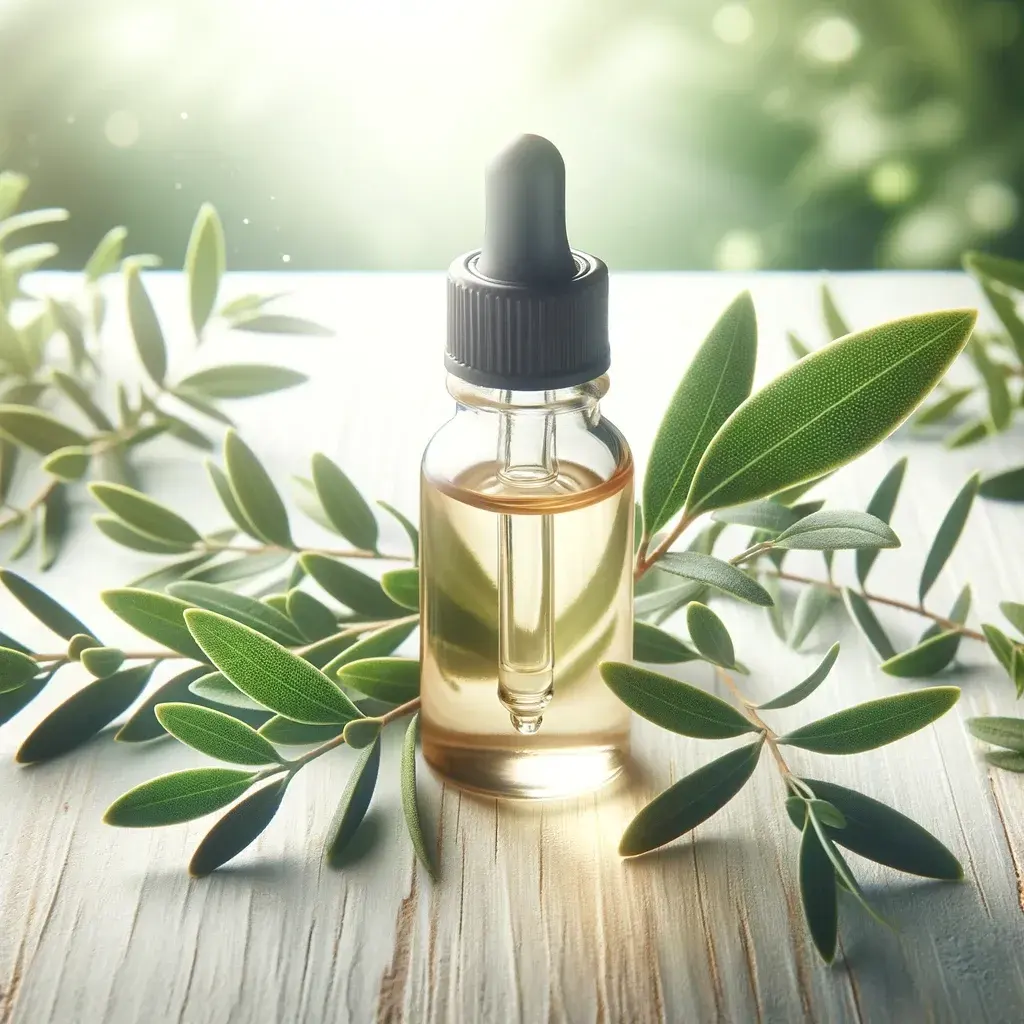
Tea Tree Essential Oil, extracted from the leaves of the Melaleuca alternifolia tree, is a powerful and versatile natural remedy in the realms of aromatherapy and alternative medicine. Known for its sharp, fresh, and slightly medicinal aroma, Tea Tree Oil is not just a robust antiseptic—it’s a potent source of diverse therapeutic benefits.
Origins and Extraction
Tea Tree Oil is derived from the Melaleuca alternifolia, a small tree native to Australia. The oil is obtained through steam distillation of the leaves, ensuring the extraction of its potent antimicrobial and healing compounds.
Historical and Cultural Significance
Ancient Uses and Traditional Medicine
The indigenous people of Australia have used tea tree leaves for centuries for their antiseptic properties. They would crush the leaves to extract the oil and apply it to cuts, burns, and infections. Tea tree oil gained significant popularity in the 20th century for its wide range of medicinal uses.
Symbol of Natural Healing
Tea tree oil has become synonymous with natural health and wellness, revered for its potent antiseptic properties. It has been widely used in skincare, household cleaning products, and as a remedy for various skin and health conditions.
Therapeutic Benefits
Tea Tree Essential Oil is celebrated for its broad spectrum of health benefits, especially in skin care and infection control.
Antimicrobial and Antiseptic Properties
Tea tree oil is renowned for its powerful antimicrobial properties. It’s effective against bacteria, viruses, and fungi, making it a go-to natural remedy for treating acne, athlete’s foot, and other infections.
Skin Care and Healing
The oil is beneficial in treating various skin conditions, promoting wound healing, and reducing inflammation. Its ability to soothe and heal makes it a popular ingredient in skincare products.
Respiratory Relief and Immune Support
Tea tree oil’s expectorant properties make it useful in alleviating respiratory conditions like coughs and colds. It also boosts the immune system, helping the body fight off infections.
Uses in Aromatherapy and Personal Care
In aromatherapy, Tea Tree Oil is used for its cleansing and revitalizing effects. It’s also a staple in personal care products for its antiseptic and healing properties, especially in treatments for acne, dandruff, and insect bites.
Blending with Other Oils
Tea Tree Oil blends well with various essential oils, including eucalyptus, lavender, and lemon, creating synergistic mixtures that enhance its therapeutic properties.
Essential Oil and Chakra Healing/Balancing
Connection to the Throat Chakra
Tea Tree Essential Oil is associated with the Throat Chakra (Vishuddha), supporting clear communication, self-expression, and overall well-being.
Balancing Effects
Its use in aromatherapy can assist in balancing the Throat Chakra, promoting a sense of purification, clarity, and integrity in communication.
Application in Chakra Healing
For chakra healing, Tea Tree Oil can be used in diffusers, during meditation, or applied topically in a diluted form to the throat area, enhancing the flow of energy and aiding in self-expression.
Precautions and Considerations
Tea Tree Oil is potent and should be used with care. It’s advisable to dilute it for topical application and conduct a patch test for sensitive skin. It should not be ingested and used cautiously around pets.
Conclusion
Tea Tree Essential Oil, with its powerful antiseptic properties and versatile uses, stands as an essential component of natural health and wellness practices, offering robust solutions for skin care and immune support.
Frequently Asked Questions (FAQs)
Can Tea Tree Essential Oil help with acne?
Yes, its antimicrobial properties make it effective in treating acne and reducing skin inflammation.
Is Tea Tree oil safe for all skin types?
While beneficial for many skin types, Tea Tree oil should be diluted and used with caution, especially for those with sensitive skin.
How can Tea Tree Oil be used in everyday life?
It can be used in diffusers for cleansing the air, added to skincare products for its antimicrobial properties, or diluted in carrier oils for topical application on skin issues.
Does Tea Tree Oil have benefits for hair and scalp health?
Yes, it’s commonly used to treat dandruff and scalp irritation due to its antifungal and soothing properties.
page on: